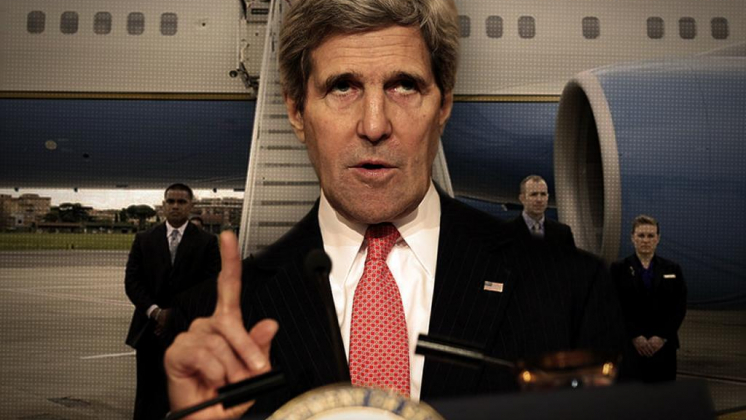The Religious Networks of the US State Department
In its annual report on religious freedom around the world, the U.S. Department of State, as has become customary, criticized Russia by declaring that the laws adopted in the country against extremism are used against "religious minorities". Hare Krishnas, Scientologists, Mormons, Islamic groups and various Protestant "churches" complain about the Russian government and the Russian Orthodox Church. According to complaints, these groups are not allowed to preach in the country, hence why the majority of the population continues to be loyal to the Orthodox Christian faith.
Thus, according to Washington, Orthodox Russia’s problem is that it is too Orthodox. Along the way, in terms of "certain Islamic groups" the US State Department includes religious extremists banned in Russia, such as terrorist organizations like ISIS, "Hizb ut-Tahrir", the "Muslim Brotherhood" and spinoffs of Salafi and Wahhabi ideologies. Furthermore, the US embraces the Gülen movement of Hizmet which allegedly shot down the Russian aircraft in Syria and attempted to carry out a coup in Turkey on July 15th.
Pseudo-Islamic groups are a rather new and exotic tool of Western intelligence services, while various quasi-Christian organizations of the Protestant association have long been used by the US secret services and their satellites. It is no accident that many CIA staff members often become pastors after they are ostensibly retired. According to reports of the Investigative Committee of the Russian Federation and the latest report from the US Department of State, it is difficult for them to expand networks in Russia, so they conduct subversive activities among Russian-speaking diasporas abroad.
The case of South Korea is an illustrative example of such.The Russian International School organized by the local community almost became a victim of a takeover by Protestant missionaries who were carrying out orders from their supervisors.
Proposals to the Russian International School were made by missionaries and officials as well as so-called "well-wishers". Smiling lawyers, graduates of MGIMO University and Moscow State University, and the acquaintances of students' parents were given friendly advice: “Enough resisting, our pastor is asking for almost nothing, just to conduct his activities with children under the emblem of their church.” Following that, it was decided to introduce their agent of influence.
To this day, many such “missionaries” continue to operate in Russia.
As in Turkey with the Gülen movement, there are many active networks of a pseudo-Christian orientation in Russia. For years, if not for decades, they have spread propaganda and fought for the hearts and minds of Russian people, striving to influence them. To succeed in their goal, material incentives were introduced which proved quite effective especially in regards to the poor. Likewise, many people people were taken for “education” to the West.
In conclusion, it appears that a lot of work still needs to be done to protect Russia and its citizens from the malicious viruses of CIA Protestantism.


